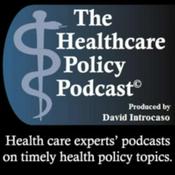To begin my 14th year of podcasting, my 335th interview is with John Abraham, Professor of Thermal Science and Fluid Mechanics at the University of St. Thomas. Prof. Abraham joins me for a fifth time or for a fifth consecutive year to discuss ocean warming in 2025 and the increasingly frightening consequences thereof.
Last Friday, Prof Abraham along with 54 research colleagues published in “Advances in Atmospheric Sciences” the article, “Ocean Heat Content Sets Another Record in 2025.” Their research found that in 2025 oceans absorbed 23 zetajoules (n followed by 21 zeros) of heat (30% more than in ’2024), a finding consistent with the fact that nearly every year since the start of the millennium has sent a new ocean heat record. In turn, the authors note long-term ocean heat accumulation contributed to extreme climate-related events in 2025 that included increasingly intense tropical cyclones, hurricanes and typhoons, heavier downpours (e.g., in late October Central Vietnam received 5.5 feet of rain in 24 hours), greater flooding, landslides, wildfires, longer marine heatwaves, increasingly decimated sea life, ice sheet loss and sea level rise that in sum impacted billions around the world. As I noted in previous years, ocean surface temps are now warming 40 times faster than 40 years ago. Because ocean heat content plays a fundamental role in the Earth’s energy, water and carbon cycles, warming ocean temperatures disrupt marine life that substantially threaten the availability of food we eat and the oxygen we breathe.
Abraham and colleagues’ article, “Ocean Heat Content Sets Another Record in 2025,” is at: https://link.springer.com/article/10.1007/s00376-026-5876-0.
This is a public episode. If you would like to discuss this with other subscribers or get access to bonus episodes, visit www.thehealthcarepolicypodcast.com



